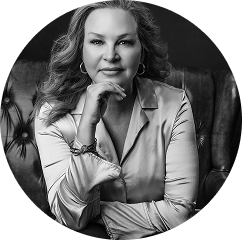
Living on a floathouse in Victoria, BC, offers a unique lifestyle with its own set of advantages and challenges. A floathouse, also known as a floating home or houseboat, is a residential structure that is built on a floating platform instead of a traditional foundation on land. These homes are typically found in waterfront communities, such as marinas, lakeshores, or riversides.
Here's a description of a typical floathouse:
Structure: Floathouses come in various designs and sizes, but they typically feature a sturdy, buoyant platform made of materials such as concrete, steel, or wood. This platform serves as the foundation for the entire structure and is designed to float on water. The house itself is constructed on top of this platform and is usually built from materials suitable for marine environments, such as wood, composite materials, or metal.
Layout: The layout of a floathouse can vary widely, but most include essential living spaces such as bedrooms, bathrooms, a kitchen, and a living area. Due to the limited space available on the floating platform, floathouses often feature compact and efficient floor plans. Some may also include additional amenities like decks, balconies, or rooftop gardens to maximize outdoor living space.
Utilities: Floathouses are equipped with utilities similar to those found in traditional homes, including electricity, plumbing, heating, and sometimes even internet and cable connections. These utilities are typically sourced from onshore infrastructure or may be provided through self-contained systems onboard the floathouse, such as generators or solar panels.
Moorage: Floathouses are moored or anchored to a fixed structure such as a dock, pilings, or mooring buoys to keep them stable and secure. Moorage arrangements may vary depending on the location and regulations governing waterfront properties. Some floathouses may be permanently moored in one location, while others may be designed to be portable or movable.
Aesthetic Features: Floathouses often feature architectural elements and design aesthetics that complement their waterfront surroundings. Large windows and open floor plans are common to take advantage of scenic views and natural light. Exterior finishes may include siding, cedar shingles, or other materials that withstand exposure to water and weather.
Overall, floathouses offer a unique and alternative housing option for those seeking waterfront living with a blend of comfort, functionality, and scenic beauty. Whether nestled in a bustling marina or secluded along a tranquil riverbank, floathouses provide residents with a distinctive lifestyle experience surrounded by the sights and sounds of the water.
Here's a breakdown of the pros and cons, along with considerations for costs, maintenance, bylaws, and regulations:
Pros:
- Scenic Views: Floathouses in Victoria offer picturesque views of the surrounding water bodies and landscapes, providing residents with a tranquil and serene environment.
- Waterfront Living: Living on a floathouse allows residents to enjoy direct access to the water, perfect for water activities such as kayaking, boating, and fishing.
- Close to Nature: Residents can immerse themselves in nature, with opportunities for birdwatching, marine life observation, and enjoying waterfront sunsets.
- Community Atmosphere: Many floathouse communities foster a tight-knit and friendly atmosphere, offering a sense of community and camaraderie among residents.
- Unique Lifestyle: Living on a floathouse offers a distinctive lifestyle that appeals to those seeking something different from traditional land-based homes.
Cons:
- Maintenance Challenges: Floathouses require regular maintenance due to exposure to water and weather elements, including hull inspections, dock maintenance, and corrosion control.
- Limited Space: Floathouses typically offer limited living space compared to traditional homes, which may require residents to downsize their belongings and adapt to a more compact living environment.
- Weather Risks: Living on the water exposes floathouse residents to weather-related risks such as storms, high winds, and tidal fluctuations, which can impact the stability and safety of the structure.
- Regulatory Compliance: Floathouse residents must adhere to local regulations and bylaws governing water-based living, which may include restrictions on construction, environmental protection measures, and waste disposal.
- Accessibility Concerns: Depending on the location, access to amenities such as shops, restaurants, and healthcare facilities may be limited compared to urban or suburban areas.
Costs and Maintenance Fees:
- Purchase Costs: The cost of purchasing a floathouse in Victoria, BC, varies depending on factors such as location, size, amenities, and condition. Prices can range from hundreds of thousands to over a million dollars.
- Maintenance Fees: In addition to mortgage payments or moorage fees, floathouse residents incur ongoing maintenance costs for hull repairs, dock maintenance, utilities, insurance, and other expenses associated with waterfront living.
Bylaws and Regulations:
- Local Government Regulations: Floathouse communities in Victoria, BC, are subject to regulations set forth by local government authorities, such as the Capital Regional District (CRD) and the City of Victoria. These regulations may include zoning restrictions, environmental regulations, and building codes specific to floating structures.
- Moorage Agreements: Floathouse residents typically enter into moorage agreements with marina operators or private landowners, which outline terms and conditions regarding moorage fees, maintenance responsibilities, and compliance with bylaws.
How easy is it to obtain a mortgage on a Floathouse?
- Capital Regional District (CRD) - Official Website: https://www.crd.bc.ca/
- City of Victoria - Official Website: https://www.victoria.ca/
- Victoria Real Estate Board: https://www.vreb.org
Disclaimer:
The information provided in these posts are for general purposes only. It is not written nor intended to provide legal advice or opinions of any kind. No one should act upon, refrain from acting, based solely upon the materials provided & recorded, or through any hypertext links and other general information, without first seeking appropriate legal and/or other professional advice.

